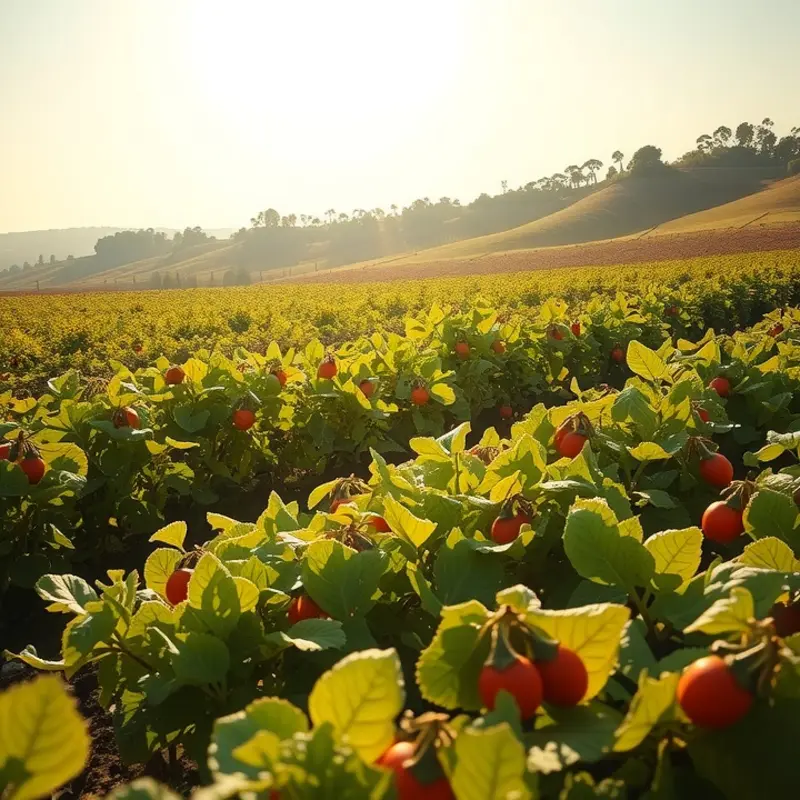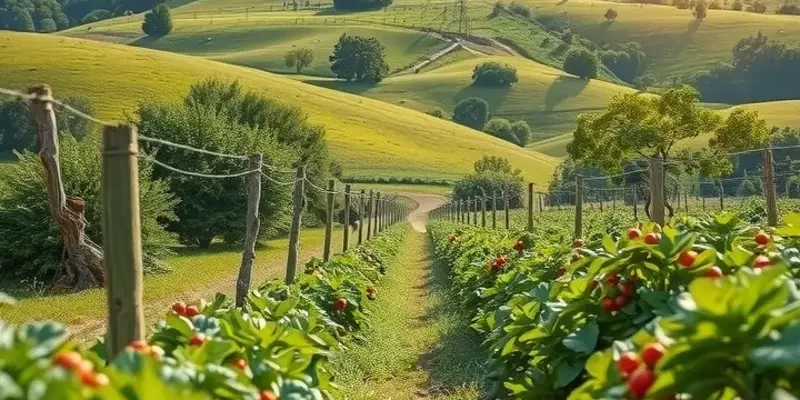Making eco-conscious grocery choices can greatly influence our environment, promoting sustainability while nourishing ourselves. By selecting eco-friendly foods and products, we contribute to the reduction of waste, carbon footprint, and overall environmental degradation. Understanding where our food comes from and opting for sustainable practices in our grocery shopping can empower us to make impactful decisions. This guide highlights actionable strategies for building an eco-friendly grocery basket, ensuring that your choices align with a commitment to preserving our planet.
Prioritizing Organic and Local Produce

Choosing organic and locally sourced foods can have a profound impact on environmental sustainability. Organic farming practices eschew synthetic pesticides and fertilizers, focusing instead on natural processes and biodiversity. This approach not only minimizes chemical runoff into waterways but also enhances soil health and increases carbon sequestration.
Selecting local produce reduces the need for long-distance transportation, significantly lowering greenhouse gas emissions. Transporting food globally often involves extensive use of fossil fuels, contributing to air pollution and climate change. Supporting local farms promotes regional agriculture, sustaining livelihoods and encouraging more producers to adopt eco-friendly practices.
To ensure your grocery basket is stocked with the best organic and local options, start by familiarizing yourself with the labels. Organic certification is marked by standards that vary by region, but generally, it guarantees the avoidance of synthetic chemicals. However, don’t overlook local farmers who may employ organic methods but lack official certification due to its high costs.
The key to effective selection is understanding the seasonality of produce. By choosing fruits and vegetables that are in season, you reduce the demand for energy-intensive greenhouse growing or imports from distant places. Seasonal produce is often fresher and more nutritious because it hasn’t been stored for long periods. Engage with local farmers’ markets where you can converse directly with growers. This interaction provides insight into their farming practices and helps determine which products align with your values.
In addition to farmers’ markets, consider joining a community-supported agriculture (CSA) program. CSAs offer weekly or bi-weekly shares of fresh produce directly from farmers, which can be more sustainable and reduce the carbon footprint of your food consumption. Being part of a CSA also supports small-scale farmers and promotes biodiversity by encouraging diverse crop cultivation.
To further enhance your eco-conscious choices, look into urban farms or community gardens in your area. These operations not only reduce transportation emissions but also improve local food security and foster connections within the community. Many urban farms utilize organic practices and introduce novel methods, such as vertical farming and hydroponics, making them an innovative solution for sustainable urban living.
Embracing eco-conscious grocery basket choices extends beyond fruits and vegetables. When selecting ingredients, consider how they’re grown and transported. For example, sourcing herbs locally not only reduces packaging requirements but also introduces vibrant, fresh flavors to your dishes. This is a clever way to enhance meals without relying on add-ons like salt, similar to the techniques discussed in our guide on flavor boosters without salt.
Ultimately, prioritizing organic and local produce in your grocery basket nurtures a healthier planet. Small actions, like asking about the origins of your food or checking when it’s in season, ripple out to create substantial environmental benefits. By making informed decisions, you contribute to a food system that’s more sustainable and aligned with the planet’s long-term wellness.
Sustainable Packaging Choices

Packaging waste remains a pressing environmental issue in grocery shopping. The journey toward more sustainable choices begins with understanding different packaging types. Consumers hold the power to demand and select products that prioritize the planet. Making eco-conscious packaging decisions can significantly cut down on landfill contributions and encourage sustainable consumption patterns.
Compostable Options
Compostable packaging materials decompose naturally when placed in a composting environment. They typically break down within 90 days, leaving no toxic residue behind. These materials often include items like plant-based plastics, paper, and certain bioplastics. Compostable packaging is especially advantageous in communities with industrial composting facilities. The key is ensuring proper segregation from non-compostable waste to facilitate effective decomposition.
Biodegradable Choices
Biodegradable materials also break down relatively quickly through the action of natural organisms. However, unlike compostable materials, they do not require specific conditions to decompose. It’s vital to note that terms like “biodegradable” can be misleading without regulation. Some products labeled as such may only partially break down, leaving smaller but persistent plastic fragments in the environment. Therefore, consumers should seek certified biodegradable options to ensure authentic eco-friendliness.
Reusable Alternatives
Embracing reusable packaging drastically reduces single-use plastic waste. Options include glass jars, bottles, and containers designed for multiple uses. These materials are often more resource-intensive to produce, but their longevity compensates for this environmental cost over repeated usage cycles. Choosing products in reusable packaging supports a circular economy, promoting reduction, reuse, and recycling principles.
Minimal Packaging Solutions
Opting for products with minimal packaging is a straightforward way to reduce waste. Fruit and vegetables, for example, can often be purchased plastic-free, while bulk buying options further limit packaging material. Consumers can bring their own reusable bags or containers to shop for bulk items, ensuring less waste ends up in landfills.
The Importance of Recycling
While reducing packaging consumption is paramount, recycling remains a crucial component of sustainable waste management. It is essential to understand local recycling guidelines, as they can vary significantly. Many recyclables, if not properly sorted and cleaned, may end up as landfill waste. By prioritizing packaging made from high-recycling opportunities materials like aluminum, glass, and paper, consumers can support a more comprehensive waste reduction strategy.
Further Steps to Consider
Eco-conscious shopping doesn’t end at selecting the right packaging. Implementing sustainable practices at home can amplify positive environmental impacts. Practical tips include proper waste separation, diligent composting, and conscious consumption habits. To explore how sustainable kitchen practices can limit food waste, readers can check out eco-smart kitchen storage techniques.
Selecting sustainable packaging significantly influences our environmental footprint. By choosing compostable, biodegradable, reusable, and minimal packaging products, consumers play a key role in fostering a healthier planet. This conscientious effort not only reduces waste but also supports a broader culture of sustainability. The journey toward sustainable grocery shopping continues by integrating these eco-friendly choices into everyday habits.
Final words
Embracing eco-conscious grocery choices is crucial for fostering a healthier planet and promoting sustainability. By prioritizing organic and local produce, as well as being mindful of packaging, we can significantly reduce our ecological footprint. Each small change in our grocery shopping habits contributes to a larger impact on the environment. It’s important to remember that making sustainable choices does not require perfection; rather, it demands a commitment to gradually integrate these practices into our everyday lives. By staying informed and motivated, collectively, we can nurture a greener world for generations to come.








